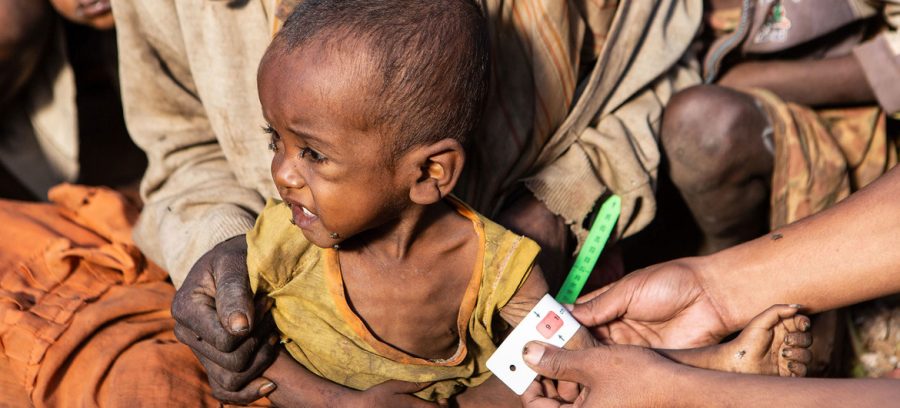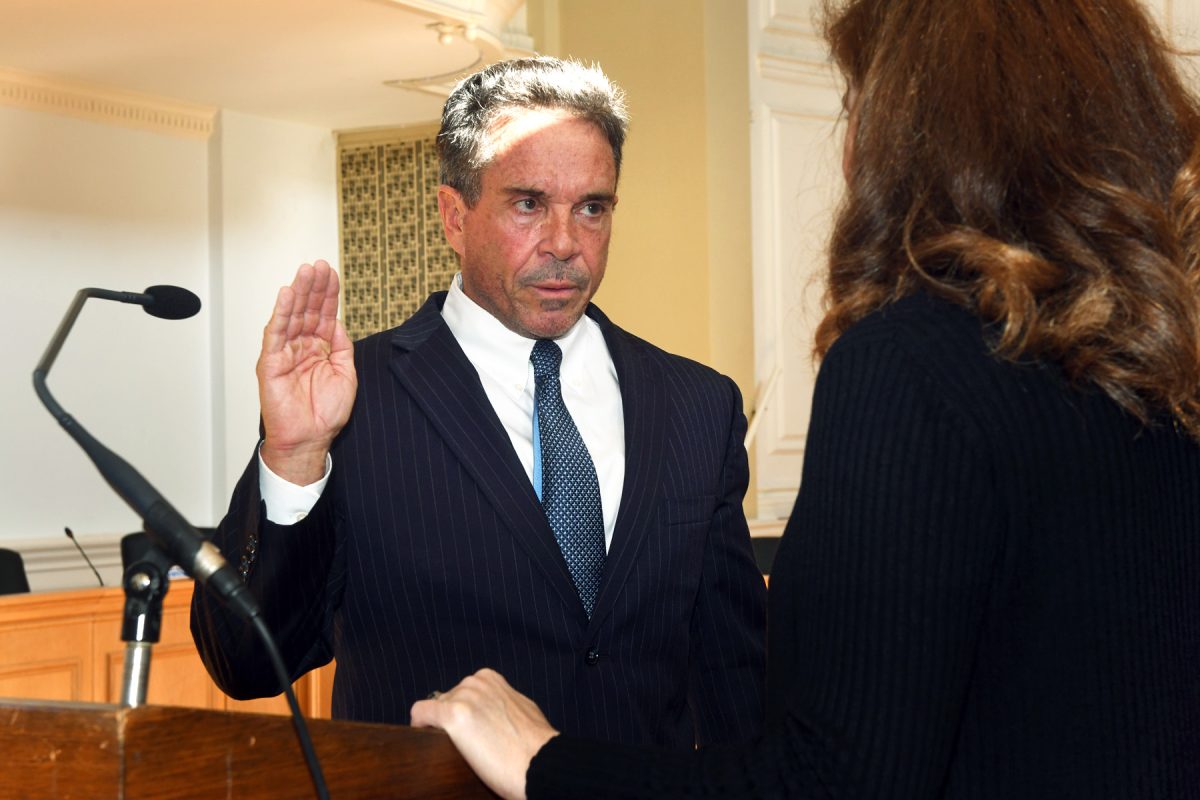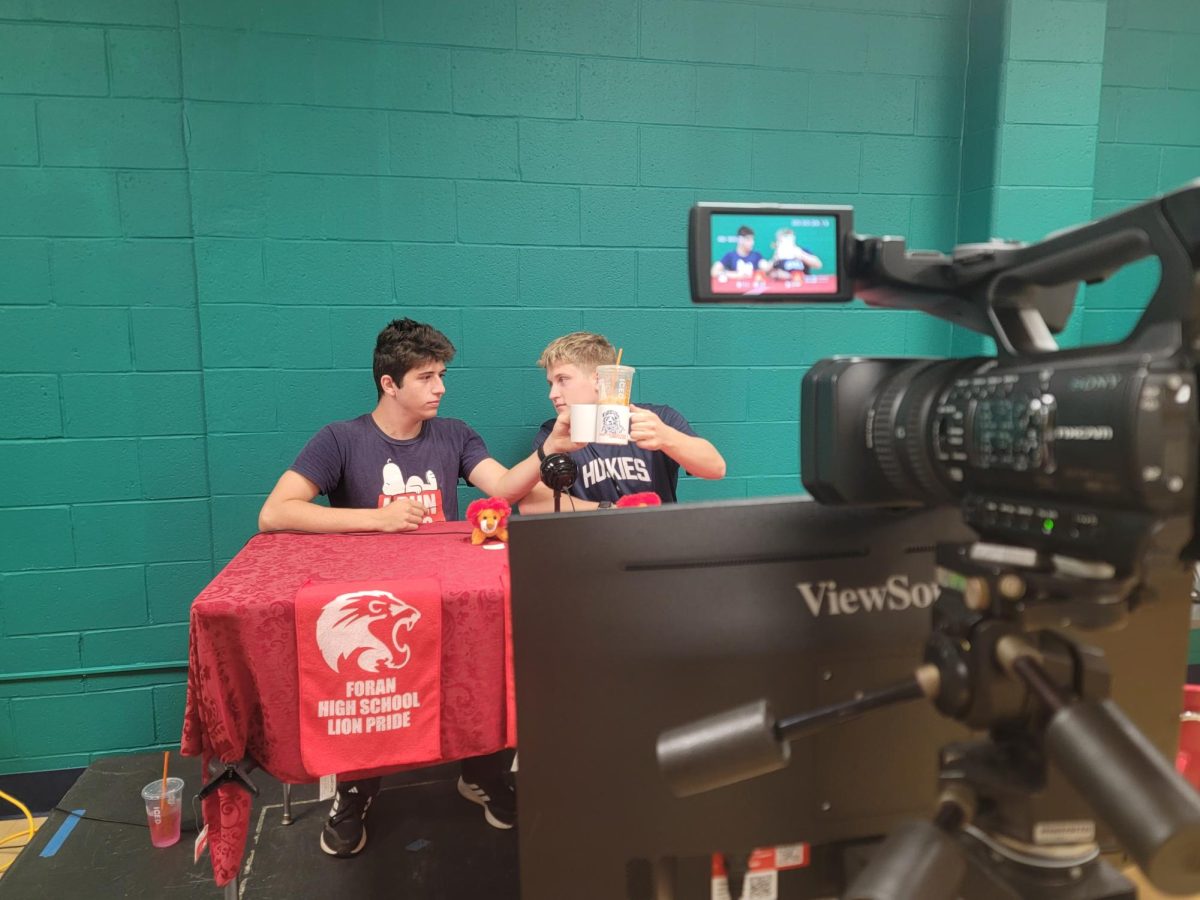“Silence, No Joy”
Madagascar Struck by Severe Famine
Monitoring Malnutrition: Doctors in Madagascar measure childrens’ arms to track their weight loss. Photo Courtesy of the World Food Programme.
December 9, 2021
Madagascar’s citizens are making history as the country battles the world’s first climate-induced famine. Cyclones, locust invasions, and half a decade of consecutive droughts aggravated by sandstorms have plunged 1.3 million people into a state of severe hunger. This crisis has left Madagascans in dire need of nutritional assistance.
The World Food Programme (WFP) reports the onset of the Madagascar famine has put 135,476 children at a nutritional disadvantage. Many have been suffering from acute malnutrition, which contributes to poor educational performance, stunts growth and development, and is extremely detrimental to general health.
Reporters who have visited the disaster zone observed firsthand how this crisis has disproportionately affected the children of Madagascar.
Aduino Mangoni, WFP Deputy Country Director in Madagascar, explains, “Whenever one enters a nutrition center, the situation is heartbreaking, with silence, no joy. Kids just staring at you and in a situation of really skin and bones.”
The famine has caused multitudes of people to abandon their traditional way of life. Citizens have sold their land, cattle, and household goods in hopes of finding aid in a nearby urban center.
Unfavorable environmental circumstances have also forced swarms of citizens to adopt desperate survival tactics. Mrs. Jaclyn DeLoma, media specialist, cites many have turned to the consumption of cactus leaves, insects, and locusts due to the lack of conventional dietary resources.
Aside from food, water is also a much-needed resource. Madagascans must walk 30 to 40 kilometers to purchase water for increasing sums of money.
Climate change has specifically targeted Madagascar, a region responsible for less than 0.01% of the world’s carbon emissions in the last 80 years. To help combat the current crisis, DeLoma raised $100 on November 22, 2021 with the help of Foran’s Model UN and Social Awareness Clubs.
DeLoma explains both students and adults suffer from a lack of global awareness and hopes to dispel unfamiliarity surrounding crises worldwide through a student-created poster project.
“Basically, our student population and many adults are just unaware of many things that are going on. I think what hits you is when you actually have that little peephole into that world for even a small amount of time, it’s just [striking],” she says.
The Foran community should look out for an upcoming crisis awareness campaign presented in collaboration with the history and language departments. Novel updates connecting classes with worldwide happenings will increase students’ knowledge of the world around them. While Madagascar received attention through the World Kindness Day fundraiser, DeLoma plans to expand Foran’s scope of understanding through a new poster project.








